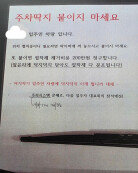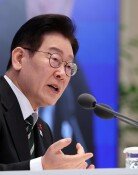[Op-Ed] Funerals for Public Council Members
[Op-Ed] Funerals for Public Council Members
Posted June. 05, 2009 08:06,
Three new systems were introduced at the time of the fourth national elections for local governments in 2006. One of them was a nomination system for political parties to prevent provincial and municipal assemblies from being dominated by a small number of influential people. The result, however, was that councilors being controlled by National Assembly members. A mid-size electoral district system intended to ease regionalism ended up intensifying it, as a party took all electoral districts where it enjoyed high popularity. Salaries to councilors were also introduced to enhance the quality of the local autonomous system, but certain assemblies have crossed the line in the amount of pay.
In 2006, the first year of the systems implementation, the Seoul City Council paid its members an average salary of 68 million won (68,000 U.S. dollars), the highest among provincial and municipal governments and nearly double that paid by the assembly of South Jeolla Province (39.6 million won). Even South Jeolla councilors, however, received more money than they did before the salary system was adopted. Among district assemblies, Seouls Seodaemun District Council was the highest payer. As electoral districts were expanded, calls rose for basic council members to get higher pay. Seouls Geumcheon district gave its councilors a whopping raise of 74.6 percent though they had to return about half their pay after losing a litigation suit filed by residents.
Many provincial and municipal councils are trying to introduce publicly financed funerals for members who die in the middle of their terms. Last month, the council of the southern Seoul suburb of Gwangju, Gyeonggi Province, unanimously passed a rule allowing the council to pay for such funeral expenses. The council of South Chungcheong Province spent 13 million won (10,442 U.S. dollars) for the funeral of one councilor who died of lung cancer last year. As long as the bereaved families agree, those councils can spend taxpayers money for funerals of their members, whose deaths have nothing to do with public duty.
Korean custom dictates generosity when it comes to death and the deceased. There is no reason to be stingy when showing respect for councilors who die while working for their communities. The councilors idea of having their own funerals paid for with taxpayers money, however, is provokingly sly.
Taxpayers are not generous to councilors who strive to get pay raises and grant favors to their cronies. Fears are rising that more people will question the local autonomous system if councilors care more about their own interests without doing their duty of providing checks and balance for provincial and municipal administrations.
Editorial Writer Kim Sun-deok (yuri@donga.com)







